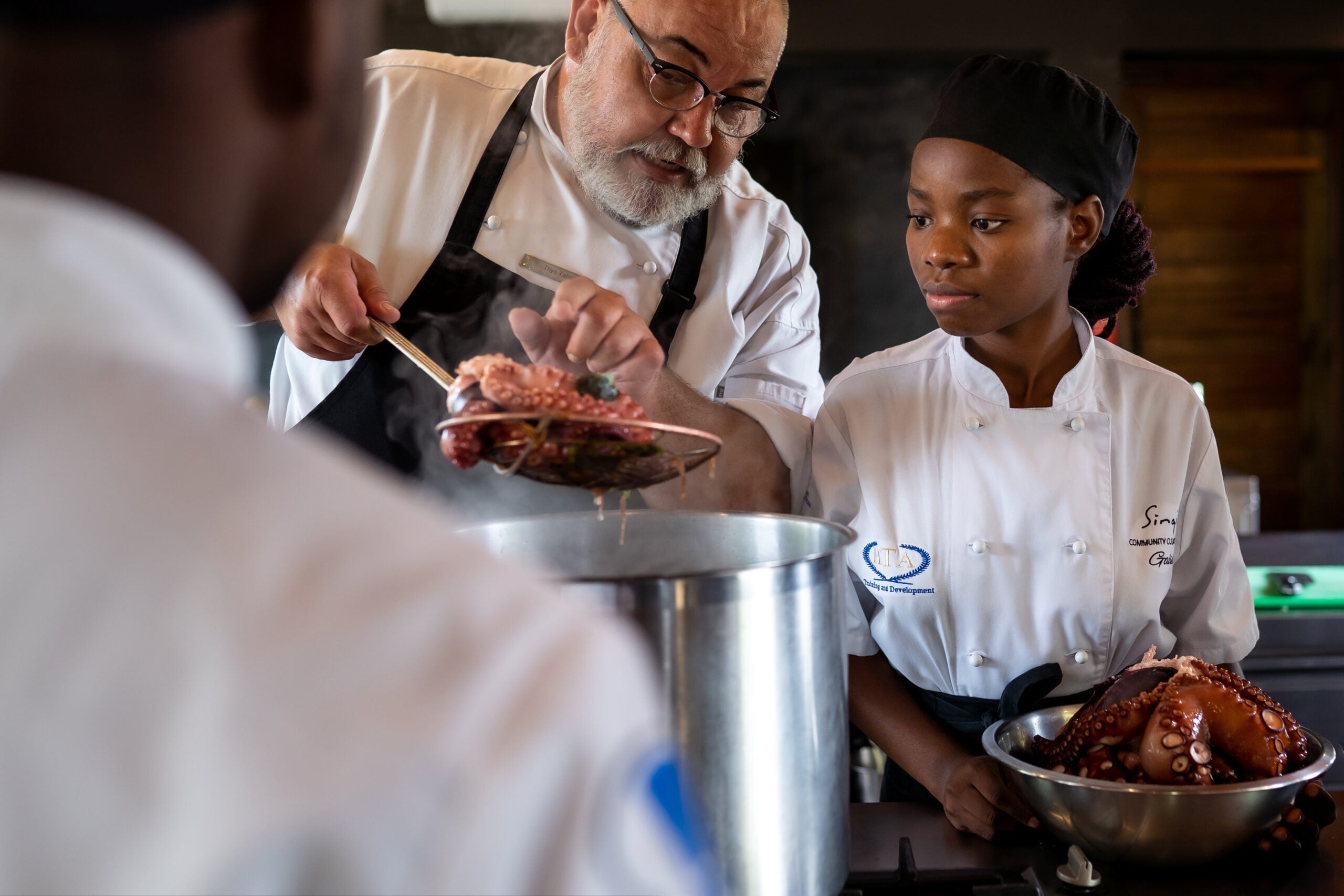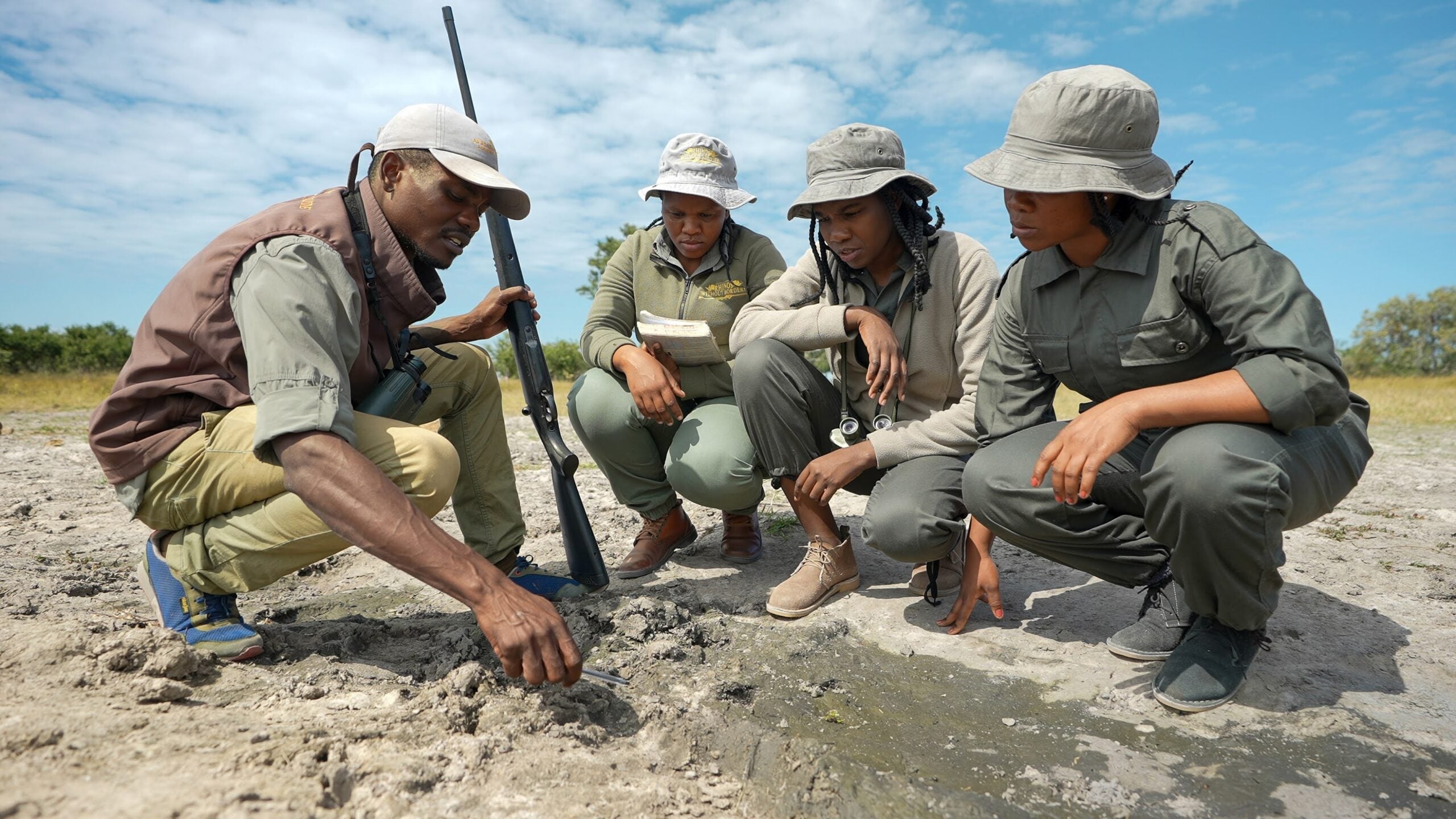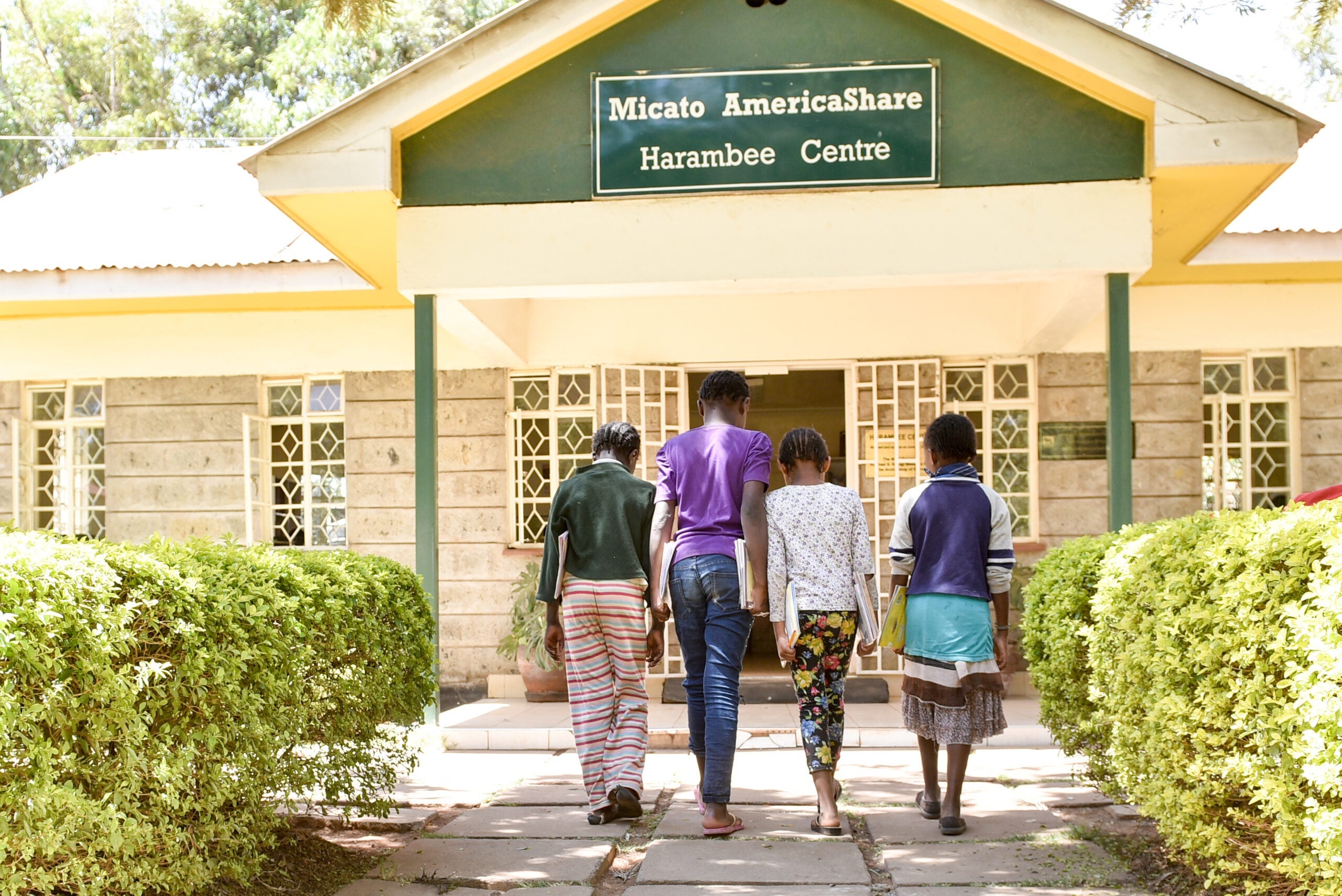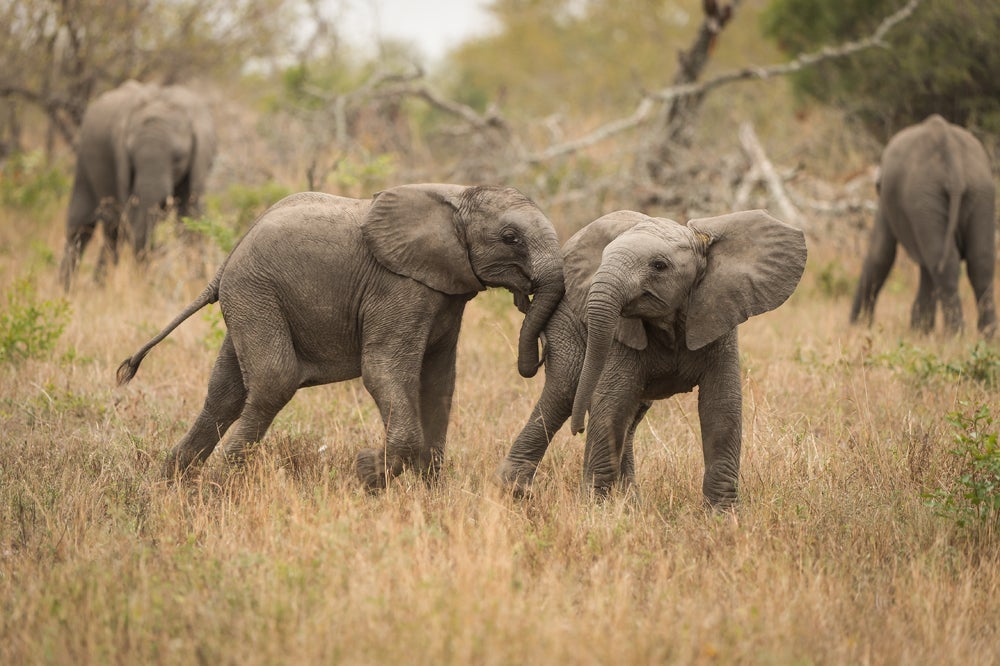Luxury African safaris that support local communities
A lot goes into a bucket list trip like an African safari, whether you realize it or not. While you're fixated on spotting the Big Five — lions, leopards, rhinos, elephants and African buffaloes — or viewing your serene surroundings from the comfort of your lodge, the hospitality industry is making an impact behind the scenes.
The best luxury lodges and tour companies are directly involved in creating programs that empower people in nearby communities and promote sustainable tourism practices that help protect the natural environments and wildlife around them. Doing so ensures that such a pricey vacation brings big economic and social benefits to local communities.
I've witnessed many of these initiatives firsthand while visiting Africa. They've opened my eyes to all that goes on at safari lodges — and changed my perspective of African safaris.
Related: 5 cool wildlife conservation activities for families around the globe
Enjoying a luxurious vacation while on safari doesn't just mean experiencing incredible service, show-stopping views and gourmet cuisine. High-end safaris are also a celebration of the areas in which they operate, as they draw attention to the importance of protecting endangered species, conserving natural resources and creating jobs and economic opportunities for the surrounding communities.
Many African safari operators and lodges have programs that give back and protect wildlife, but there are several upscale properties and companies that go above and beyond to integrate philanthropic efforts into their offerings. These make it easy for you to effortlessly support initiatives that create sustainable support systems for the people and places you encounter while enjoying an epic journey you'll never forget.
Know, though, that not every company takes the same approach to giving back, so it's important you do your homework ahead of time. Look at an operator's website for information about its programs, and pay particular attention to charitable initiatives. Safari lodges that run their own programs will lay out their commitments directly in their mission statements or highlight their outreach at the top of their homepages.
To help you get started, we scoured the web and pulled from our personal experiences to highlight three safari operators with superb social initiatives. While these are far from the only companies doing their part to have a positive impact on local communities, they stand out thanks to the scope and scale of what they're doing on the ground.
Singita
Singita is known for having some of the most luxurious safari lodges in southern and East Africa, with properties in enviable locations such as South Africa's Sabi Sands Game Reserve, Tanzania's Grumeti Reserve and Rwanda's Volcanoes National Park.

At each of the company's six locations, conservation, wildlife management and community partnerships are an important part of its operations. However, there is one location that is especially memorable for the work it's doing: Pamushana Lodge.
Located in Zimbabwe's Malilangwe Wildlife Reserve, Singita's Pamushana Lodge spearheads an extensive food program that provides 19,000 children in the area with nutrient-rich meals every single day. The Supplemental Feeding Program, which was started in the early 2000s after a food shortage throughout Zimbabwe sparked by ongoing droughts, focuses on toddlers, young children and school-age students so that hunger doesn't get in the way of their development and education.
One of the details that stuck with me long after my visit to Pamushana was seeing some of the women who had been empowered to run the programs at the 436 feeding points and 11 primary schools. Each leader took great satisfaction in her job. That passion to help the community was hard to miss, as all the kids I encountered were smiling from ear to ear.

Several locations in South Africa, Rwanda and Tanzania also offer Community Culinary Schools, another unique Singita program focusing on food but in a completely different way.
Through this initiative, Singita provides a professional-level cooking school experience to qualifying members of the communities closest to its participating lodges. These are rigorous culinary programs led by faculty who could easily work in a cosmopolitan city, as I witnessed during my time at the facility in Kruger National Park. Everything I tried was delicious, and seeing the students beaming with pride at their creations was priceless.
By helping young people from the area learn how to be chefs, Singita is not only expanding participants' horizons but also making it possible for them to financially support their families. After all, the program helps pave the way for many to work kitchen jobs in Singita lodges and beyond. In fact, one graduate even staged at Michelin-starred Blue Hill at Stone Barns in New York.
Related: Everything you need to know about going on safari in Africa with renowned expert Marlon du Toit
Great Plains
Known for its conservation-minded programs and ultra-exclusive lodges in East Africa and Botswana, Great Plains aims to shed light on the connection between people, land and wildlife. The group seeks to do this through a series of projects it's created and overseen for several decades with the help of its owners, Derek and Beverly Joubert — two well-known figures in the safari world and beyond for their National Geographic documentaries that spotlight everything from endangered rhinos to elephant relocation.
Unsurprisingly, the Jouberts excel at conservation efforts, including a few unique projects tied to Great Plains.
Through Solar Lanterns, a Great Plains Foundation initiative, a safe light source is brought to families on the edges of the Okavango Delta in Botswana so they can safely carry out daily activities. By offering Mason jar-style solar-powered lanterns, which are free to use, families in the community can rely less on flammable (and expensive) sources of light like paraffin lanterns and candles. (Even if you're not going on safari with Great Plains, you can donate a lantern through this link.)

Another noteworthy initiative from Great Plains is its Female Rangers program in both the Okavango Delta and Zimbabwe's Sapi Reserve.
Traditionally, most rangers in safari lodges are men, as they often have more schooling opportunities and fewer hurdles to face when it comes to prospective careers. As a result, there have historically been few female rangers in game reserves.
To address this issue, Great Plains provides education, resources and skill-building opportunities to local Motswana and Zimbabwean women so they can become female rangers. Through these roles, participants serve as ambassadors for conservation, leaders in their local communities and role models for young girls near and far.
Related: How to ensure your safari is ethical
Micato Safaris
A leader in the high-end safari industry that combines authentic experiences with ultra-luxurious lodging and top-notch guides, Micato Safaris goes well beyond curating one-of-a-kind African adventures. The tour operator's programs truly stand out in the African tourism industry.
One that you can learn more about while browsing the company's website is its One for One Commitment, a program that sends one child to school for every safari booked. The group covers everything from uniforms and books to tuition so there are no out-of-pocket expenses for the students' families.

Additionally, there's Micato's AmericaShare initiative, which started more than 35 years ago. It established the Harambee Community Centre in the Mukuru shantytown of Nairobi, Kenya, so the community receives access to much-needed services, such as education, technology, fresh water and treatment for HIV/AIDS. (Note that Micato can arrange AmericaShare visits if you're traveling with them through Nairobi.)
Out of this AmericaShare program came another equally important initiative: Huru International. Created by AmericaShare co-founder Lorna Macleod, this nonprofit organization does double duty to help girls attend school by supplying sanitary supplies and training unemployed women in how to make these products. By making everything needed during menstruation easily accessible, young women are more likely to stay in school and thus learn valuable skills they can apply to future careers.
Since it was founded in 2008, Huru International has produced more than 1.3 million high-quality reusable pads, which have been given to 175,000-plus girls throughout East Africa.
Related: Best ways to redeem points and miles for safaris
Bottom line
Going on safari not only opens a window to the wonders of Africa's wild spaces but also opens a door to helping others through social initiative programs created by local lodges.
Whether you book with one of these tour operators or choose another after doing your own research, you'll find that it's possible to enjoy an unforgettable vacation in Africa that's just as life-changing for others as it is for you. By supporting sustainable development initiatives while visiting Africa, you'll do your part to keep our planet and its inhabitants thriving for generations to come.
TPG featured card
at Capital One's secure site
Terms & restrictions apply. See rates & fees.
| 5X miles | Earn 5X miles on hotels, vacation rentals and rental cars booked through Capital One Travel |
| 2X miles | Earn unlimited 2X miles on every purchase, every day |
Pros
- Stellar welcome offer of 75,000 miles after spending $4,000 on purchases in the first three months from account opening. Plus, a $250 Capital One Travel credit to use in your first cardholder year upon account opening.
- You'll earn 2 miles per dollar on every purchase, which means you won't have to worry about memorizing bonus categories
- Rewards are versatile and can be redeemed for a statement credit or transferred to Capital One’s transfer partners
Cons
- Highest bonus-earning categories only on travel booked via Capital One Travel
- LIMITED-TIME OFFER: Enjoy $250 to use on Capital One Travel in your first cardholder year, plus earn 75,000 bonus miles once you spend $4,000 on purchases within the first 3 months from account opening - that’s equal to $1,000 in travel
- Earn unlimited 2X miles on every purchase, every day
- Earn 5X miles on hotels, vacation rentals and rental cars booked through Capital One Travel
- Miles won't expire for the life of the account and there's no limit to how many you can earn
- Receive up to a $120 credit for Global Entry or TSA PreCheck®
- Use your miles to get reimbursed for any travel purchase—or redeem by booking a trip through Capital One Travel
- Enjoy a $50 experience credit and other premium benefits with every hotel and vacation rental booked from the Lifestyle Collection
- Transfer your miles to your choice of 15+ travel loyalty programs
- Top rated mobile app


